As a BetterHelp affiliate, we receive compensation from BetterHelp if you purchase products or services through the links provided
Injustice trauma is a form of psychological distress that emerges from witnessing or experiencing unjust and unfair treatment. It often arises from systemic oppression, discrimination, and abuse of power. This type of trauma affects individuals and communities, resulting in physical, psychological, behavioral, relational, cultural, and spiritual distress.
Understanding the concept of injustice trauma helps bring to light the impact of systemic inequities and social injustices on mental health and well-being. It is crucial to recognize the various forms this trauma might take and the different social contexts in which it occurs. By doing so, we can work towards addressing the root causes and fostering hope and resilience in the face of injustice.
It is essential to acknowledge the role of mental health care in helping those affected by injustice trauma. Support and resources tailored to the unique experiences of individuals and communities facing injustice can promote healing and affirm their dignity in the face of systemic oppression.
Key Takeaways
- Injustice trauma is a psychological distress arising from unfair treatment and systemic oppression.
- It affects individuals and communities, impacting mental health, well-being, and societal structures.
- Mental health care is crucial in supporting and fostering resilience among those affected by injustice trauma.
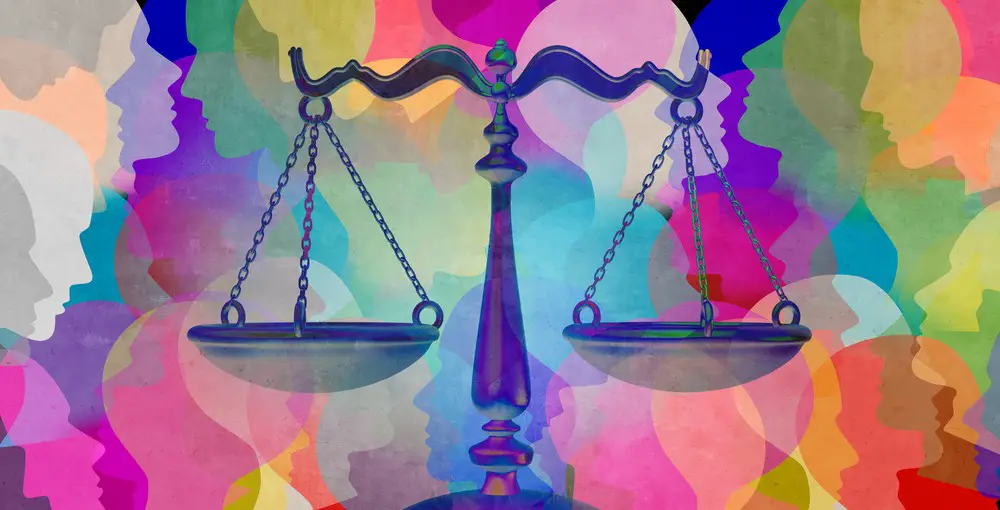
Understanding Injustice Trauma
Injustice trauma is a type of psychological distress that results from experiences of unfair treatment, discrimination, and social injustices. It affects individuals and communities and harms mental health, well-being, and societal structures.
When faced with injustice trauma, you might experience various emotions like anger, stress, and grief. The detrimental effects on mental health include anxiety, depression, and even PTSD (post-traumatic stress disorder). This trauma can stem from being unfairly targeted, mistreated, or blocked from opportunities based on sexual orientation, race, disability status, or size.
It’s important to recognize the signs of injustice trauma and understand that it is a valid and significant type of trauma. Here are some steps to help you cope and heal:
- Acknowledge the pain: Accepting that you have experienced injustice and trauma is the first step to healing. Allow yourself to feel the pain and talk to others who have experienced similar situations to gain solidarity.
- Seek professional support: A mental health professional, such as a therapist, can help you process your feelings and develop coping strategies. They can also provide resources for further support and education.
- Cultivate self-care: Focus on your mental and physical well-being by engaging in relaxation activities, such as meditation, exercise, or hobbies you enjoy. Prioritize self-compassion and remember that healing takes time.
- Build a support system: Surround yourself with friends, family, or fellow community members who understand what you are going through and can offer encouragement. Joining support groups or engaging in community activism can also help foster a sense of belonging.
- Educate yourself: Develop a deeper understanding of the systemic issues that contribute to injustice trauma. This can empower you and provide a framework to advocate for change in your life and community.
Remember, it’s crucial to validate your feelings and recognize injustice trauma’s impact on your life. By taking proactive steps, you can build resilience and move towards healing.
Manifestations of Injustice Trauma
Psychological Signs
Injustice trauma can take a toll on your mental health, leading to various psychological distress. You may experience:
- Anxiety: A constant sense of worry or uneasiness stemming from the injustice.
- Depression: Feelings of helplessness and hopelessness may arise as you struggle with unfair treatment.
- Fear: Living in constant fear of being targeted or mistreated again.
- Blame: A tendency to blame yourself for the injustice, even when it’s not your fault.
Recognizing these signs and seeking support to cope with your emotional well-being is essential.
Physical Symptoms
In addition to emotional challenges, injustice trauma can also manifest in physical forms, which include:
- Fatigue: The psychological distress may result in chronic tiredness or lack of energy, impacting your daily functioning.
- Stress-related issues: Issues like headaches, muscle tension, or digestive problems might occur due to the stress caused by injustice trauma.
- Sleep disturbances: Difficulty falling asleep, staying asleep, or experiencing nightmares could be associated with the trauma.
Paying attention to these physical manifestations is vital for improving your overall health. Contact a therapist or healthcare professional to address these symptoms and develop coping strategies.
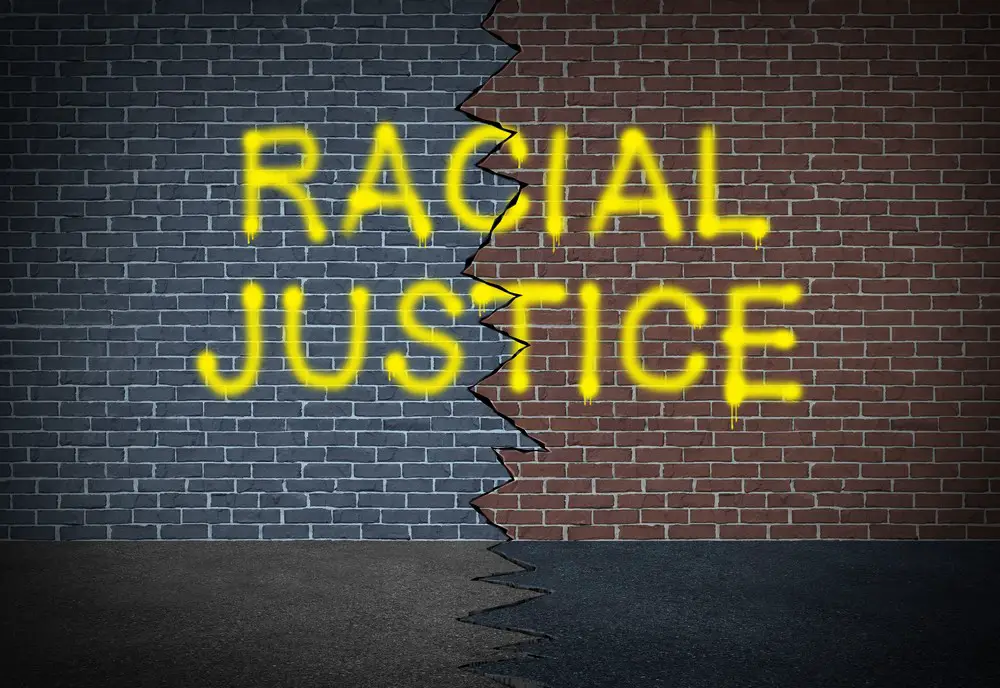
Injustice Trauma in Different Social Contexts
Racial Injustice
Racial injustice occurs when individuals or groups are unfairly treated, discriminated against, or marginalized based on race or ethnicity. This can manifest in various forms, including racial profiling, police brutality, and subtle microaggressions. Racial injustice trauma often results in psychological, behavioral, and emotional distress that can last for years, impacting the overall well-being of those affected. Examples include:
- Police brutality: Black people and other marginalized groups may experience injustice and trauma following incidents of excessive force, unwarranted arrests, and unjust violence at the hands of police.
- Racial profiling: You may experience anxiety and stress due to being wrongfully targeted or harassed based on race or ethnicity.
Gender-Based Injustice
Gender-based injustice occurs when individuals or groups face discrimination, stereotypes, and unequal treatment based on their gender. This includes sexism, gender-based violence, and harassment in various contexts:
- Sexual harassment: You may be affected by injustice trauma if you’ve experienced unwanted advances, inappropriate remarks, or other forms of harassment based on your gender.
- Domestic violence and intimate partner violence: Gender-based violence can lead to profound psychological, emotional, and physical harm for survivors.
Socioeconomic Discrimination
Socioeconomic discrimination is the unfair treatment or marginalization of individuals or groups based on their social and economic status. This can come in several forms, such as housing, employment, and educational opportunities:
- Poverty and income inequality: Discrimination or trauma from unfair wages, limited job opportunities, or unaffordable housing may threaten your psychological well-being.
- Education: Children may experience injustice trauma if given fewer resources or opportunities due to their socioeconomic status, perpetuating poverty and social exclusion cycles.
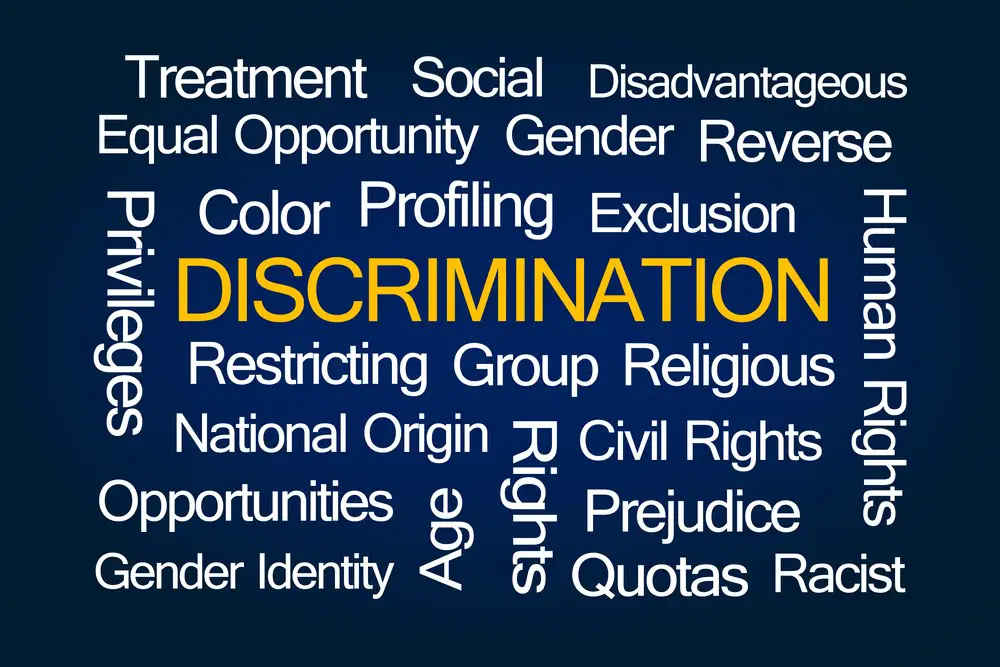
Religious Discrimination
Religious discrimination involves the unequal treatment or marginalization of people based on their religious beliefs or practices. This may result in a lack of acceptance, understanding, and respect toward individuals or groups with differing religious beliefs. Examples of religious injustice trauma include:
- Hate crimes: You may experience trauma due to religious discrimination through acts of violence, harassment, or vandalism directed at you or your community based on your faith.
- Bullying: Children and adults may face bullying in schools, workplaces, or communities because of their religious practices or beliefs, leading to psychological and emotional distress.
Sexual Orientation Discrimination
Sexual orientation discrimination occurs when individuals or groups are maltreated or marginalized due to their sexual orientation. This discrimination can manifest in various ways, leading to injustice and trauma for those targeted:
- LGBTQ+ rights: The denial of rights and social acceptance for LGBTQ+ individuals, such as marriage equality or representation, can lead to feelings of isolation and trauma.
- Abuse and harassment: Members of the LGBTQ+ community may experience physical, verbal, or emotional abuse based on their sexual orientation, leading to lasting emotional and psychological distress.
By being aware of these various forms of injustice trauma, you can better understand the experiences and emotions faced by those affected and take steps toward promoting empathy, healing, and social justice.
Systemic Oppression and Injustice Trauma
Systemic oppression refers to how injustices are embedded within various social and political structures. This might include racial injustice, social inequalities, and human rights violations perpetuating powerlessness among marginalized groups. Injustice trauma, on the other hand, stems from experiencing these deeply ingrained, unfair systems.
As a result of systemic oppression, individuals often face various psychological, emotional, and physical challenges. The effects of injustice trauma can manifest in varied ways, such as anxiety, depression, and mistrust or disillusionment with the world around you. Acknowledging and understanding these consequences is essential when seeking to heal and move forward.
A critical aspect of addressing injustice trauma is recognizing the different elements that contribute to it:
- Racial injustice: Ongoing discrimination, prejudice, and stereotypes based on race perpetuate a sense of isolation and inequality for those affected.
- Social inequalities: Income disparities and limited access to education, healthcare, and other essential resources create barriers and hardships for disadvantaged individuals.
- Human rights violations: Abuse, neglect, and denying basic human rights can leave lasting, traumatic impacts on survivors.
- Powerlessness: The inability to change or challenge oppressive systems can lead to feelings of helplessness, depression, or even despair.
To cope with injustice trauma, consider engaging in some of the following strategies:
- Seek professional help: A therapist or counselor can provide valuable support and guidance through healing.
- Educate yourself: Learning about systemic oppression and injustice can empower you to identify triggers, contextualize your experiences, and advocate for change.
- Build a support network: Connecting with others who have experienced similar traumas can offer understanding, validation, and encouragement.
- Engage in self-care: Prioritize your mental, emotional, and physical well-being by engaging in activities that comfort or relieve stress.
- Seek opportunities for change: Advocate for policy reforms, participate in community organizations or volunteer to help make positive changes within your community.
While pervasive and deeply rooted, injustice trauma can be addressed with the right tools and support. You can work toward healing and creating a more equitable future by acknowledging and validating your experiences, seeking help, engaging in self-care, and supporting change.
 Responding to and Recognizing Injustice Trauma
Responding to and Recognizing Injustice Trauma
Recognizing injustice trauma is the first step to addressing it and fostering a healing process. Listening to your emotions and observing changes in your behavior, thoughts, and relationships is important. If you’ve been exposed to unfair treatment or discrimination based on your group identity, you might experience physical, psychological, relational, or even spiritual distress. Acknowledging these feelings is crucial, as it allows you to give voice to your experiences.
To respond to injustice trauma and provide support, here are some practical actions to consider:
- Validate your feelings: It’s common for people experiencing injustice trauma to feel like they’re being gaslit or their feelings are being dismissed. Remind yourself that your emotions are valid and invaluable, and seek a safe and supportive environment to share your experiences.
- Connect with others: Engage with friends, family members, or professionals who understand and validate your feelings. Building a network of support and sharing experiences with others who have faced similar situations can be immensely helpful.
- Educate yourself: Learn more about trauma, injustice, and the systemic issues contributing to these experiences. This understanding will empower you to make informed decisions on how to cope and respond effectively.
- Practice self-care: Set aside time for activities promoting physical, mental, and emotional well-being. This could include exercise, engagement in hobbies, journaling, and therapy.
- Get involved: Consider joining or supporting organizations to address social injustices and create systemic change. This involvement can help build resilience and provide a sense of agency in adversity.
In summary, by recognizing and responding to injustice trauma, you can regain your voice, establish supportive connections, and foster individual and collective healing. Remember, your experience matters, and seeking help is an act of strength, not weakness.
Hope and Resilience in the Face of Injustice Trauma
Injustice trauma can weigh heavily on your mind and heart, but finding hope and building resilience during these trying times is vital. By cultivating resilience, you’ll be better equipped to face the challenges that come your way and emerge stronger. Here are a few strategies to keep in mind:
- Practice self-care: Prioritize your mental, emotional, and physical well-being. Engaging in activities that bring you joy, staying physically active, and getting enough rest can go a long way in nurturing resilience. Remember, you can’t pour from an empty cup!
- Stay connected: Reach out to supportive friends, family, and communities who understand your experiences with injustice. Sharing your thoughts and feelings with people who empathize can help alleviate some of the burden and create a sense of solidarity.
- Speak up and take action: Participate in activism and advocate for equity and justice. Raising your voice and standing up against injustice means fighting for your rights and fostering a sense of purpose and control in difficult situations.
- Acknowledge your achievements: Recognize your accomplishments and personal growth despite obstacles. This will remind you of your strength and inspire hope for the future.
- Seek professional help if needed: If you’re struggling to cope with injustice trauma, don’t hesitate to seek the help of a mental health professional. They can help you develop personalized coping strategies and guide you toward healing.
By embracing these strategies and focusing on hope and resilience, you’ll be better prepared to navigate the complexities of life and find the strength to overcome injustice and trauma.

Mental Health Care and Injustice Trauma
Injustice trauma is a type of psychological distress resulting from experiences of systemic inequity or unfair treatment based on race, sexual orientation, or disability status. This section explores various therapeutic approaches to cope with and heal from injustice trauma.
Trauma-Informed Therapy
Trauma-informed therapy is a therapeutic approach that acknowledges the impact of trauma and seeks to create a safe environment for healing. This type of therapy emphasizes:
- Understanding the signs and symptoms of trauma
- Recognizing how trauma affects an individual’s thoughts, feelings, and behaviors
- Creating a safe, supportive space for healing
- Empowering the individual through their healing process
Finding a mental health professional who understands injustice trauma and its impacts is crucial to engaging in trauma-informed therapy.
Affirming Care
Affirming care is a therapeutic approach that centers on validating a person’s experiences and identities while working through the effects of injustice trauma. This approach includes:
- Offering validation and empathy for the individual’s experiences
- Acknowledging and addressing the role of systemic oppression in one’s life
- Encouraging self-reflection and self-compassion
- Providing support for setting boundaries and advocating for oneself
Incorporating affirming care into therapy can benefit individuals who have experienced injustice and trauma, fostering a sense of safety, understanding, and empowerment.
 Mindfulness and Meditation
Mindfulness and Meditation
Mindfulness and meditation are essential tools to develop resilience and self-awareness in the face of injustice trauma. These practices can:
- Improve well-being by reducing stress and negative emotions
- Increase emotional regulation and self-compassion
- Enhance self-awareness and focus on the present moment
- Help develop coping strategies for dealing with triggers and trauma-related symptoms
By incorporating mindfulness and meditation into your mental health care plan, you can work towards overcoming the challenges associated with injustice and trauma and build resilience to lead a more balanced life. Remember to seek support from mental health professionals who understand your experiences and are well-trained in these practices.
 Signs You May Need Therapy for Injustice Trauma
Signs You May Need Therapy for Injustice Trauma
If you’ve been experiencing the ripple effects of injustice trauma, it can be tough to navigate the emotional landscape. Here are some signs you might need professional help:
- Persistent Anxiety or Stress: A constant state of worry related to experiences of injustice.
- Emotional Withdrawal: Pulling away from friends and activities, especially those that could trigger memories of unfair treatment.
- Unexplained Physical Symptoms: Headaches or stomachaches have no medical cause but are often linked to emotional distress.
- Overwhelm: Feeling unable to cope with everyday responsibilities due to emotional fatigue.
- Feelings of Helplessness: A pervasive sense that you can’t make a change, either for yourself or others affected by similar issues.
Setting Goals for Your Therapy Journey
Once you’ve decided to seek therapy, it’s crucial to establish goals for what you hope to achieve. Goals could include:
- Understanding Triggers: Identifying situations or reminders that heighten your symptoms.
- Coping Mechanisms: Learning healthy ways to manage stress and emotional pain.
- Empowerment: Building self-esteem and confidence to stand against injustice.
- Community Building: Learning how to seek support from those who share similar experiences.
- Advocacy Skills: Acquiring tools to contribute to societal change and combat systemic oppression.
How to Know You’re Making Progress
Therapy is a journey, and sometimes, it’s hard to gauge how far you’ve come. Here are some signs that you’re making progress:
- Reduced Anxiety: A noticeable decline in constant worry or stress.
- Increased Engagement: Feeling able to participate in social activities without the pervasive fear of triggering events.
- Improved Physical Well-being: Decreased unexplained physical symptoms like headaches or stomachaches.
- Emotional Resilience: Finding it easier to bounce back from setbacks rather than spiraling into despair.
- Community Involvement: Actively engaging in community activities or advocacy, suggesting a renewed sense of hope and purpose.
Remember, every individual’s journey is unique. However, observing these signs and achieving your set goals can indicate that you’re on the path to healing and resilience.
Frequently Asked Questions

How does injustice trauma affect mental health?
Injustice trauma can have significant effects on your mental health. It can lead to feelings of powerlessness, anger, sadness, and isolation. This trauma may also contribute to developing mental health disorders such as anxiety, depression, and post-traumatic stress disorder (PTSD). Recognizing these emotions and seeking appropriate help and support to protect your well-being is essential.
What are common coping mechanisms for injustice trauma?
People coping with injustice trauma may adopt various strategies to deal with the emotional pain. Some common coping mechanisms include:
- Seeking support from friends, family, or support groups
- Engaging in self-care practices, such as exercise, meditation, or journaling
- Learning about the experiences of others who have faced similar injustices
- Engaging in activism or advocacy work to challenge and change oppressive systems
Remember, finding healthy coping strategies that work for you and avoiding unhealthy behaviors, such as substance abuse or self-harm, is crucial.
How is injustice trauma related to childhood experiences?
Experiences of injustice during childhood can leave a lasting impact on a person’s mental and emotional well-being. When children witness or experience unfair treatment or discrimination, they feel vulnerable and unsafe, leading to long-term challenges with trust, self-esteem, and relationships. Childhood injustice trauma can continue into adulthood, potentially affecting mental health, career success, and personal relationships.
What are typical symptoms of injustice trauma?
Injustice trauma can manifest in several ways. Common symptoms may include:
- Feelings of sadness, anger, or hopelessness
- Poor self-esteem or self-worth
- Difficulty trusting others or forming close relationships
- Withdrawal from social situations and activities
- Physical symptoms such as fatigue, sleep disturbances, or headaches
- Anxiety, depression, or PTSD
If you recognize these symptoms, seeking professional help and support is crucial.
How can therapy aid in healing from injustice trauma?
Therapy can be a vital step in healing for those experiencing injustice and trauma. A qualified therapist can help you:
- Explore and make sense of the injustice you experienced
- Develop coping strategies to manage the emotional pain and distress
- Build a stronger support network to help you through the healing process
- Address any mental health challenges resulting from the trauma, such as anxiety or depression
- Work towards acceptance and empowerment to regain control over your life and well-being
What causes an individual to experience injustice and trauma?
Injustice trauma is caused by unfair treatment, discrimination, or systemic oppression experienced or witnessed by an individual. This trauma can arise from various situations, such as racism, sexism, homophobia, or ableism, where a person is unfairly targeted, mistreated, or denied opportunities based on their social identity or perceived differences. The impact of injustice trauma can be profound, affecting a person’s mental health, well-being, and sense of self-worth.
? My Journey to Better Mental Health with BetterHelp
Hey there, I’m Jacob Maslow, and I want to share a bit about my journey through the ups and downs of life, especially dealing with a complex family dynamic and the painful experience of being separated from my kids.
? A Life-Changing Tragedy: Surviving 9-11
I’ve faced some unthinkable hardships—surviving 9-11 and losing over a thousand coworkers on the 101st floor. But my resilience wasn’t just put to the test there.
? The Shift to Family Life and New Challenges
Post-9/11, I transitioned to working from home, became the primary caregiver to our kids, and tried to maintain a dual-household family even after separation. Things dramatically changed when my ex-wife cut me off from our kids completely.
?️ Finding Comfort in Online Therapy: Why I Recommend BetterHelp
During these extremely challenging times, BetterHelp has been a game-changer for me. I can’t recommend it enough for anyone going through tough periods—especially when dealing with issues as intricate and emotionally taxing as family estrangement. They also have a fantastic platform called Regain.us for couples in need.
? Resilience and Mental Health: Walking the Talk
? The Medication and Therapy Balance
I take Lexapro to manage my mental health, and I’ve been a therapy veteran. Recently, I joined BetterHelp to add another layer of support.
? Facing Narcissistic Behavior: The Ongoing Battle
I know how difficult it is if you’re dealing with a narcissistic ex-partner. My ex-wife has escalated her narcissistic behavior over the years, making co-parenting nearly impossible. She even stopped cooperating with reunification therapy when the therapist got our kids to agree to end the alienation.
? My Daily Coping Mechanism: Long Walks and Writing
I take long walks to clear my head and write about mental health and legal strategies for those dealing with difficult spouses who refuse to comply with court orders.
? You Can Overcome Mental Health Challenges
Life isn’t always kind, and sometimes it deals you a hand that tests every fiber of your being. But I believe anyone can surmount their mental health challenges. I even run a legal site to help others in similar predicaments.
? Takeaway: It’s All About Resilience and Support
You’re not alone in this fight. Resources like BetterHelp and Regain.us can be incredibly empowering. You can’t choose your circumstances, but you can choose how to respond, which makes all the difference.
I hope my story brings you some comfort, and remember, resilience is possible, even in the face of dire injustice.

- How to Transform a Home’s Patio Space into a Relaxing Space - March 23, 2025
- 5 Strategies to Use a Cell Phone to Help Manage Your Stress - March 23, 2025
- 4 Ways to Use Measurements to Create a Relaxing Sleep Space - March 23, 2025
This site contains affiliate links to products. We will receive a commission for purchases made through these links.

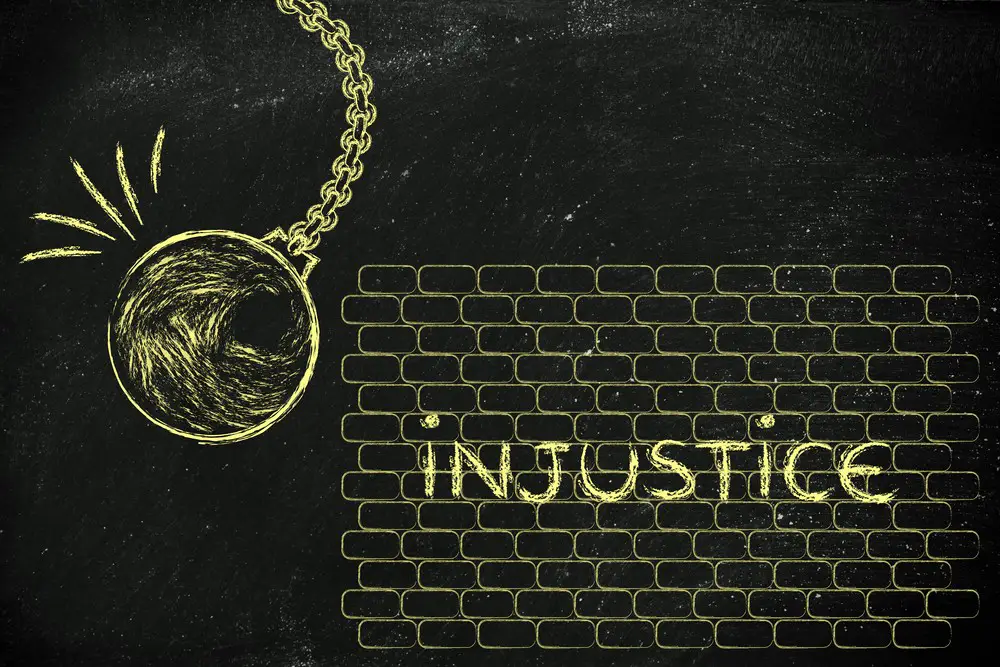
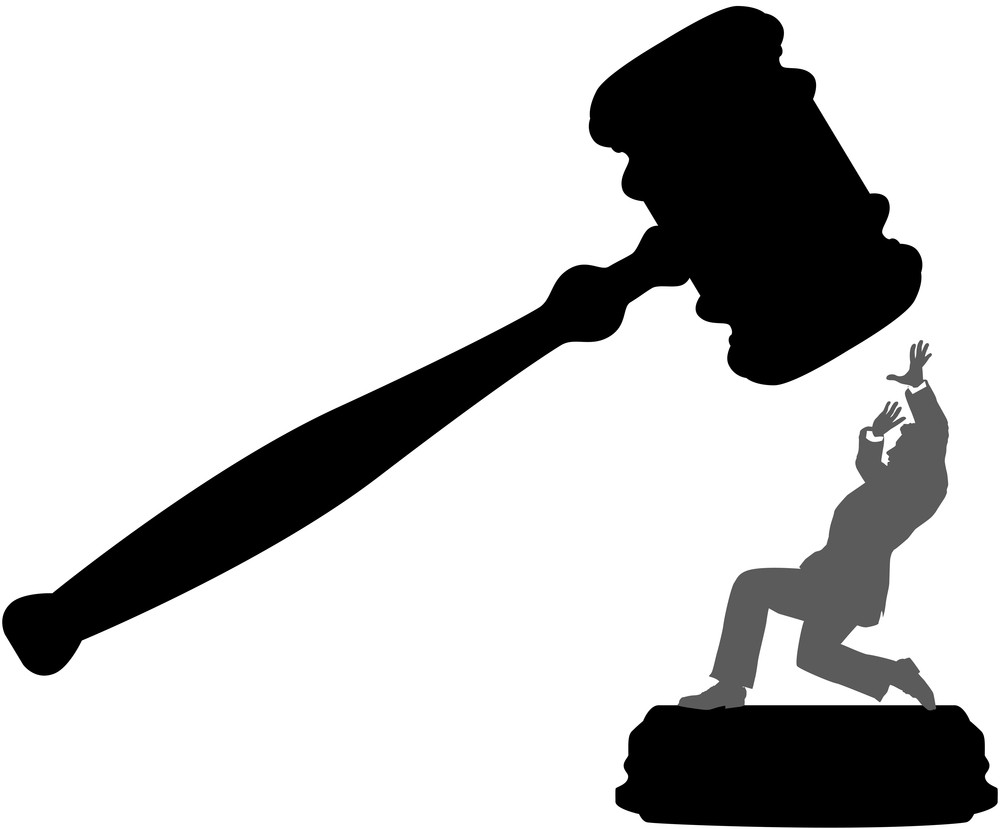 Responding to and Recognizing Injustice Trauma
Responding to and Recognizing Injustice Trauma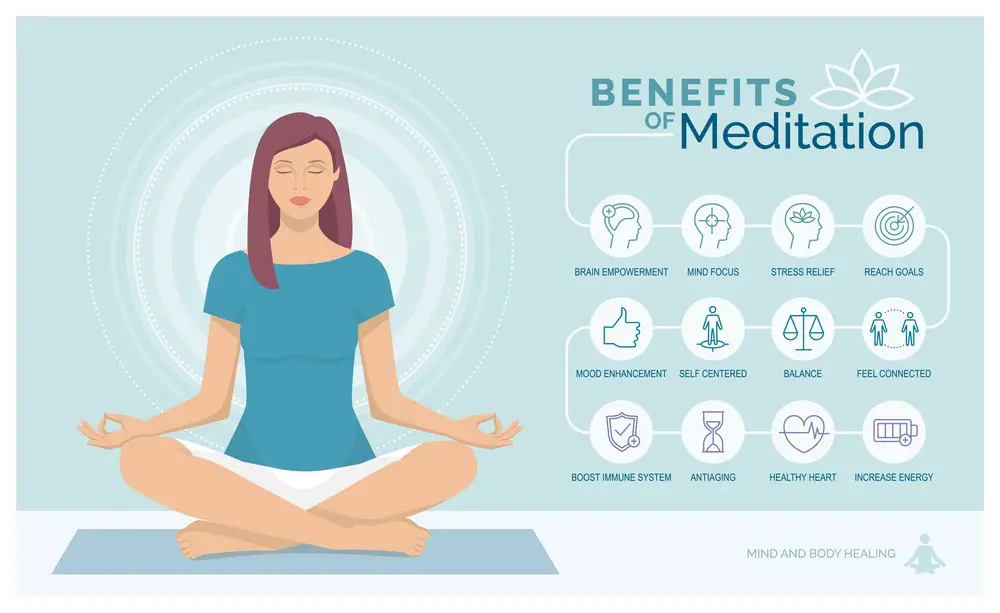 Mindfulness and Meditation
Mindfulness and Meditation Signs You May Need Therapy for Injustice Trauma
Signs You May Need Therapy for Injustice Trauma
